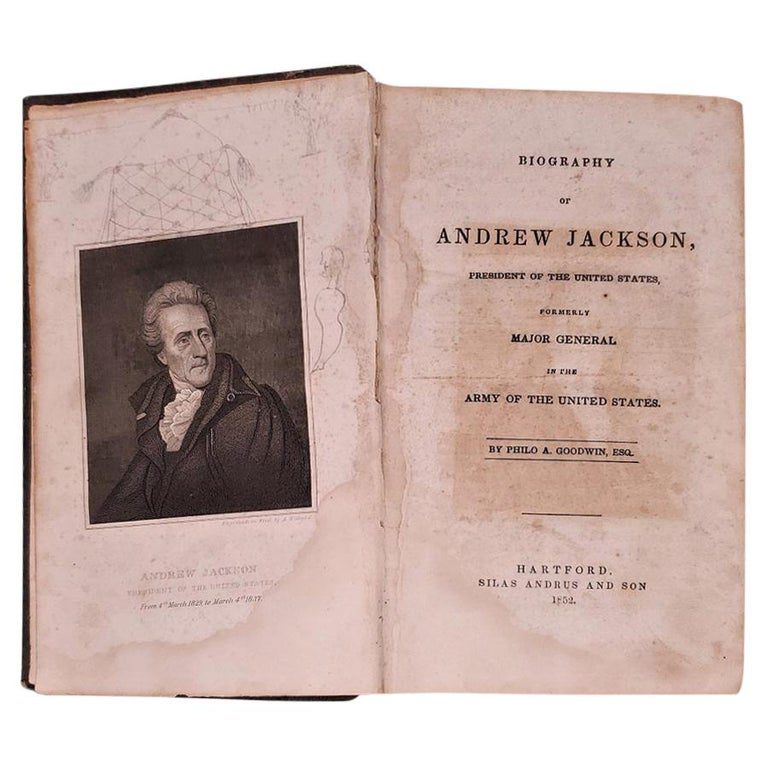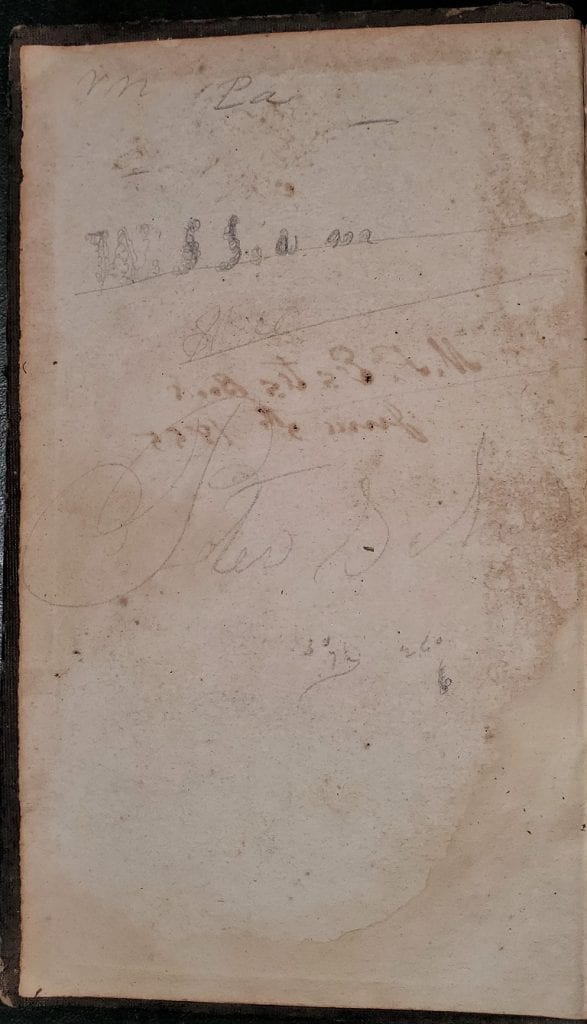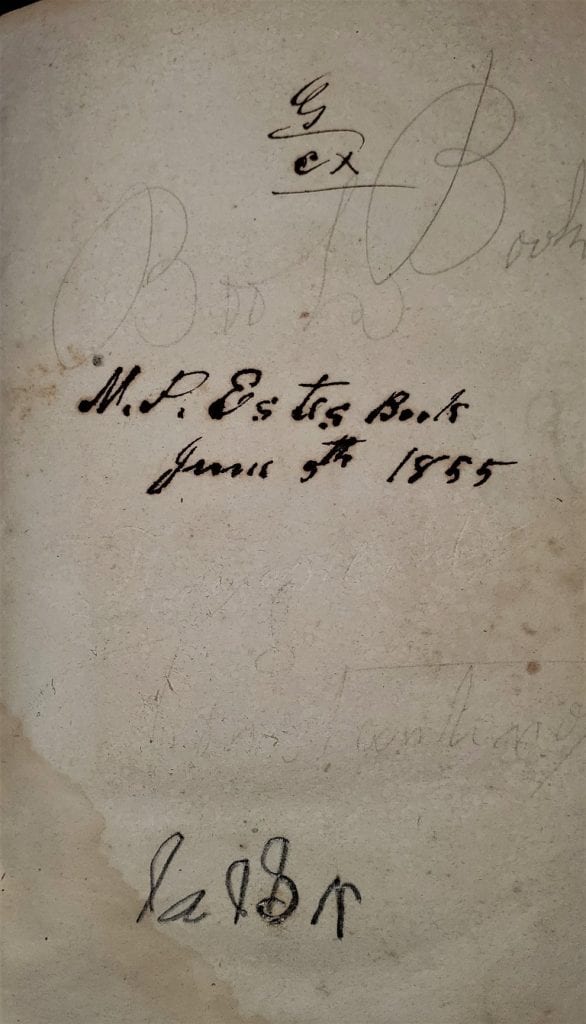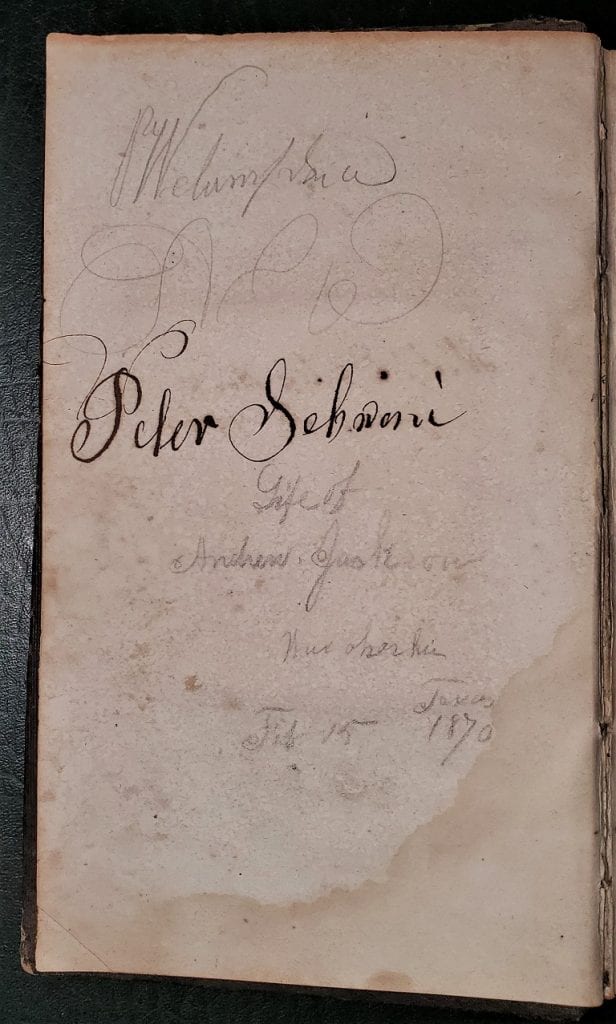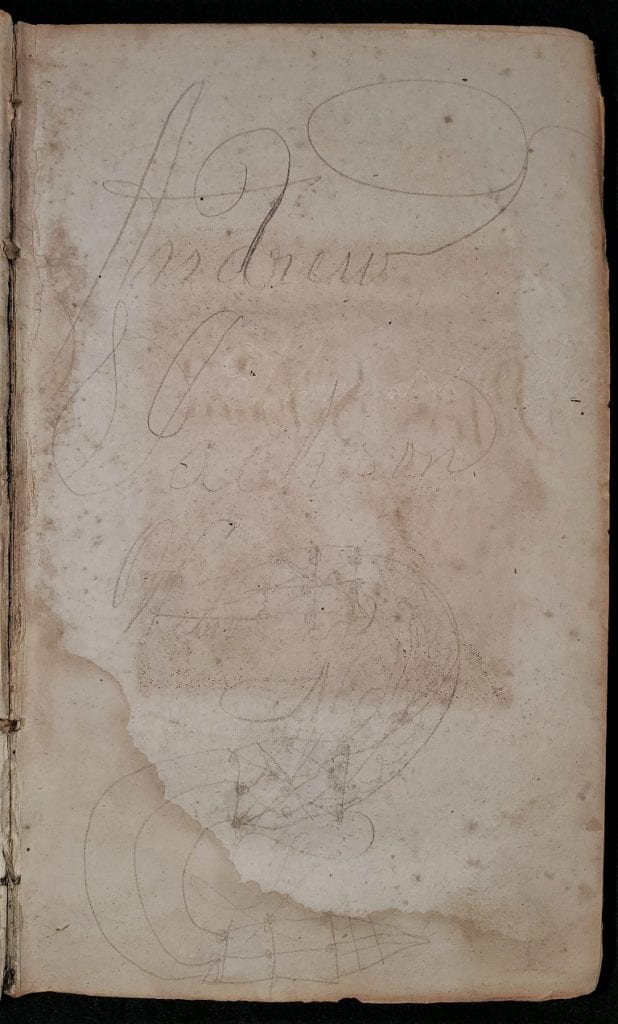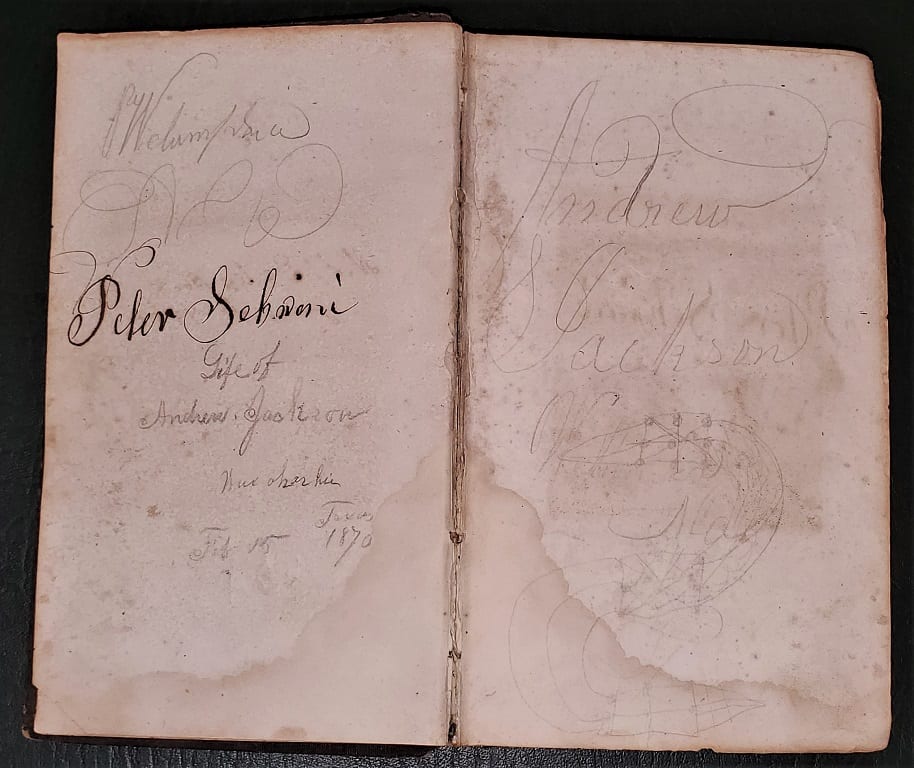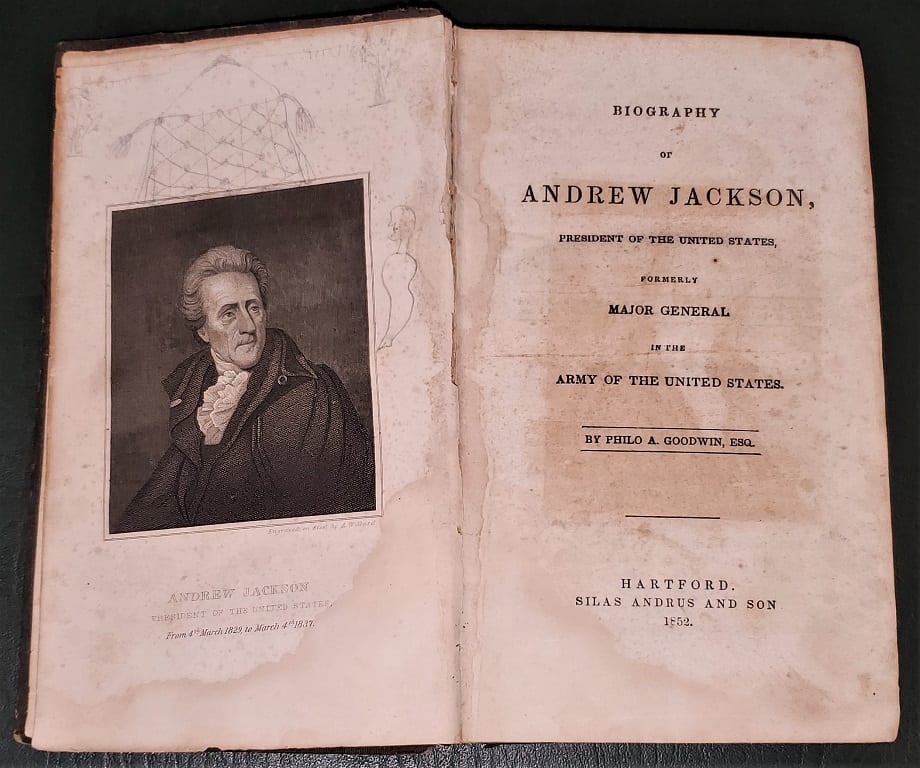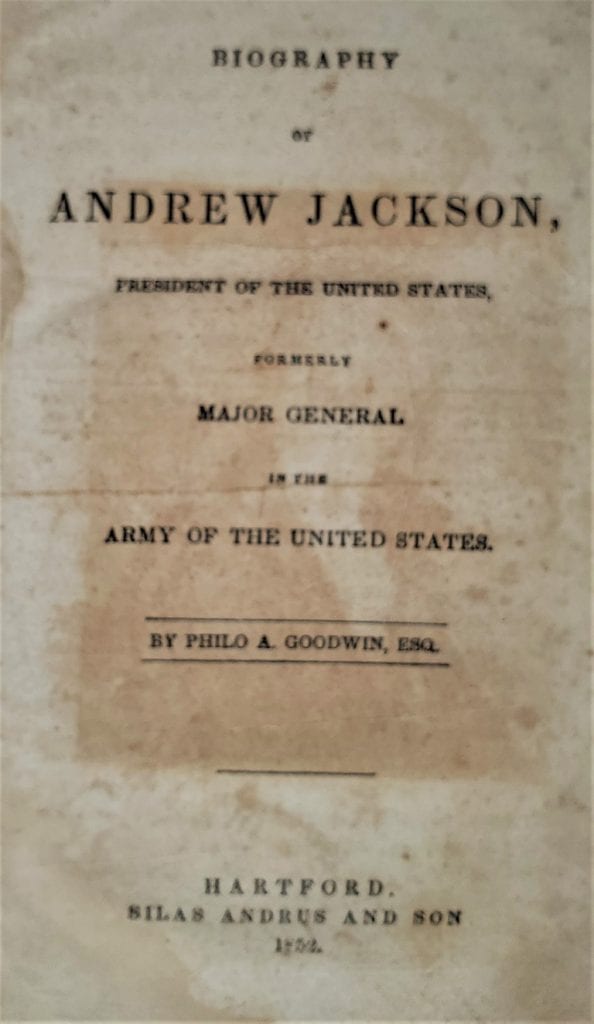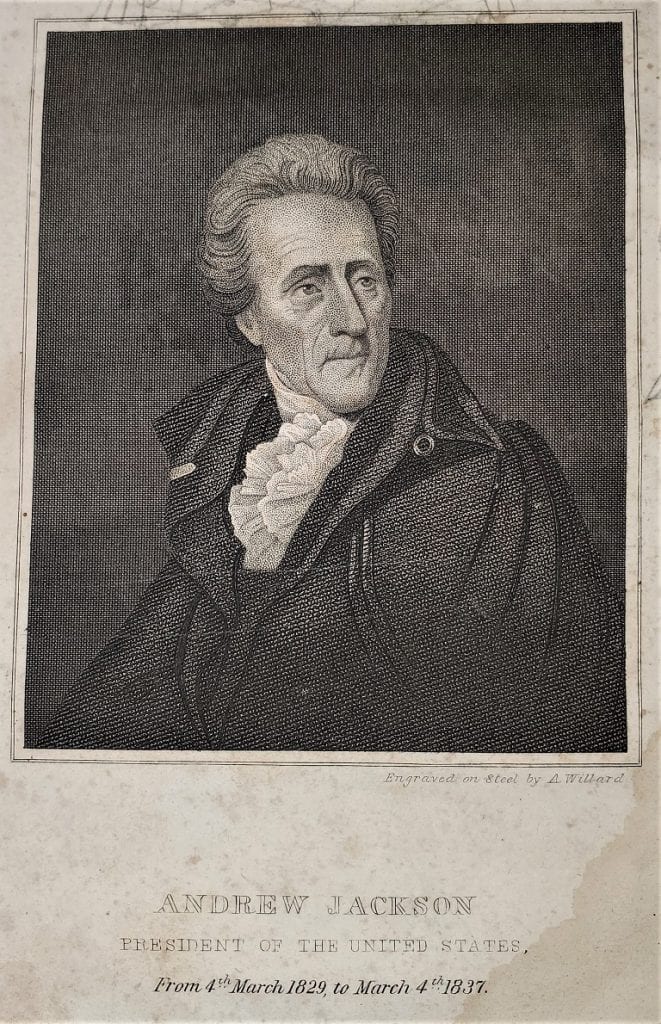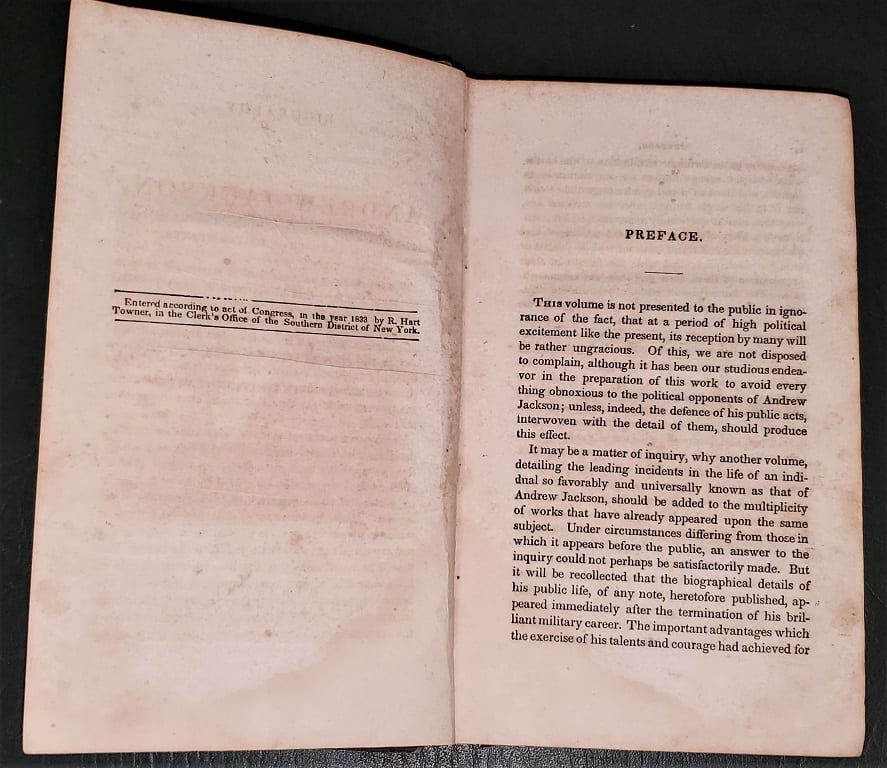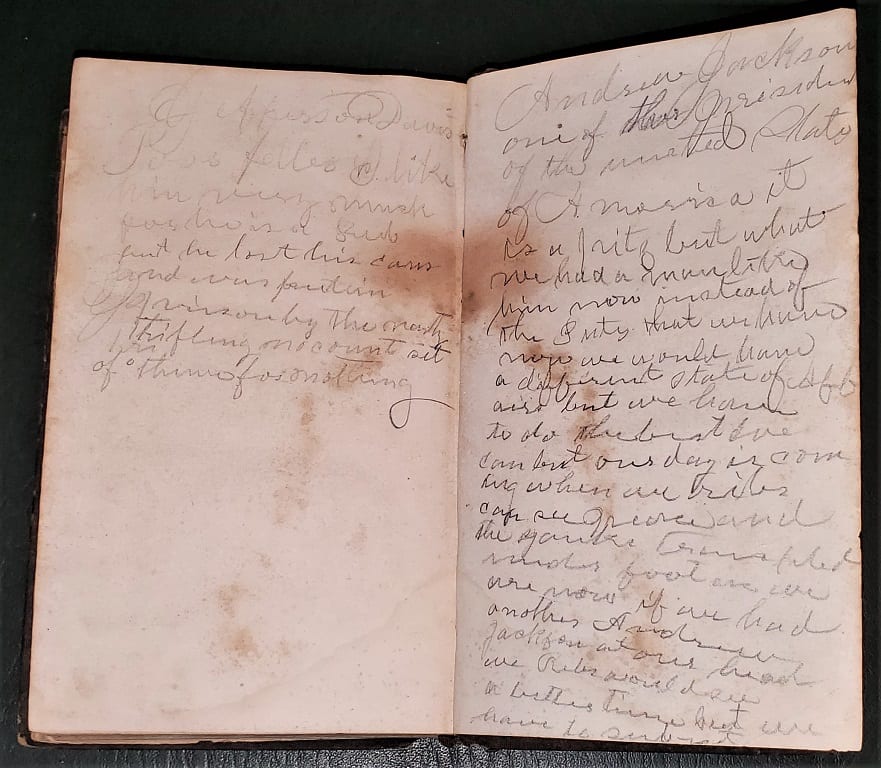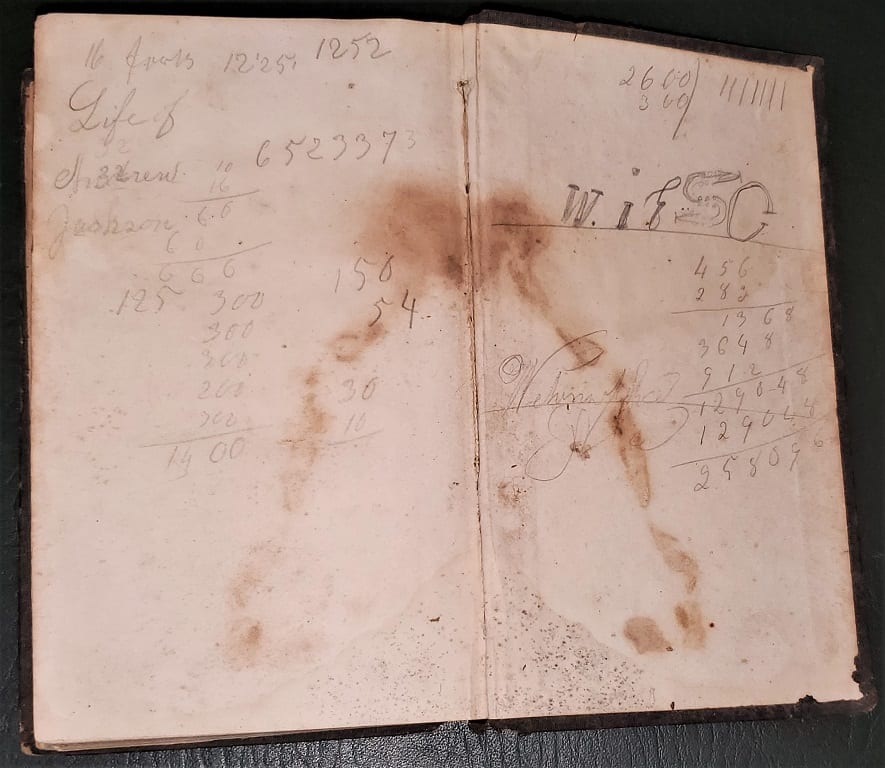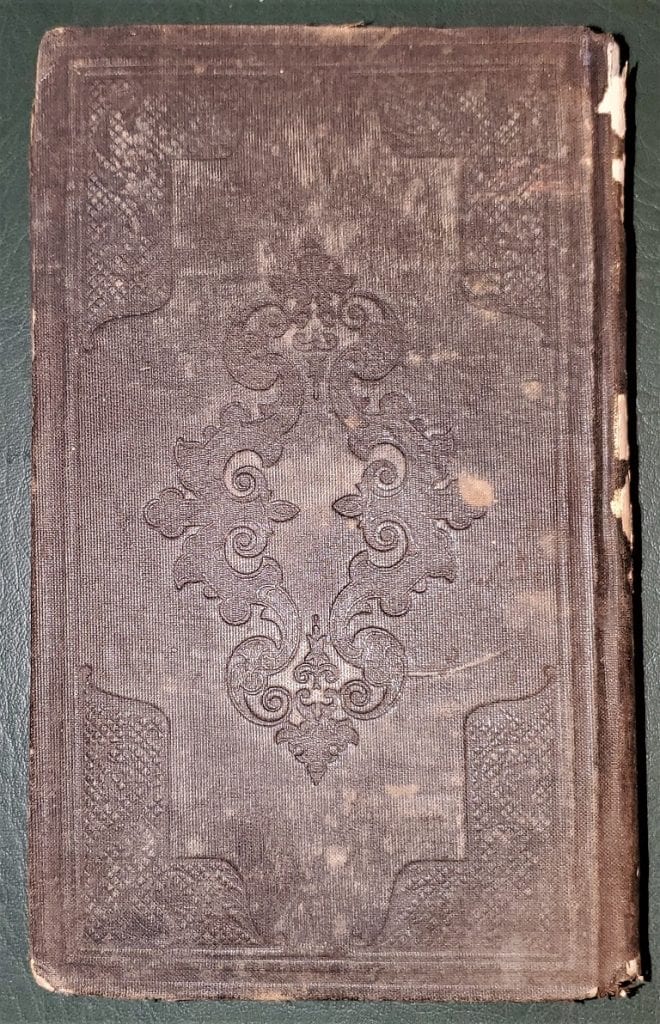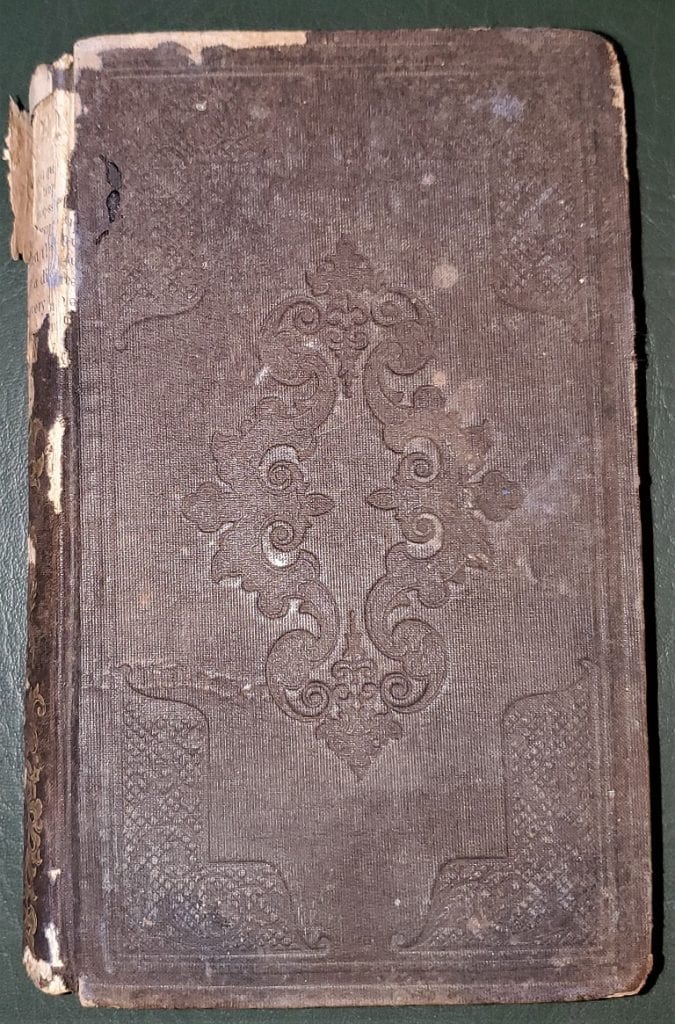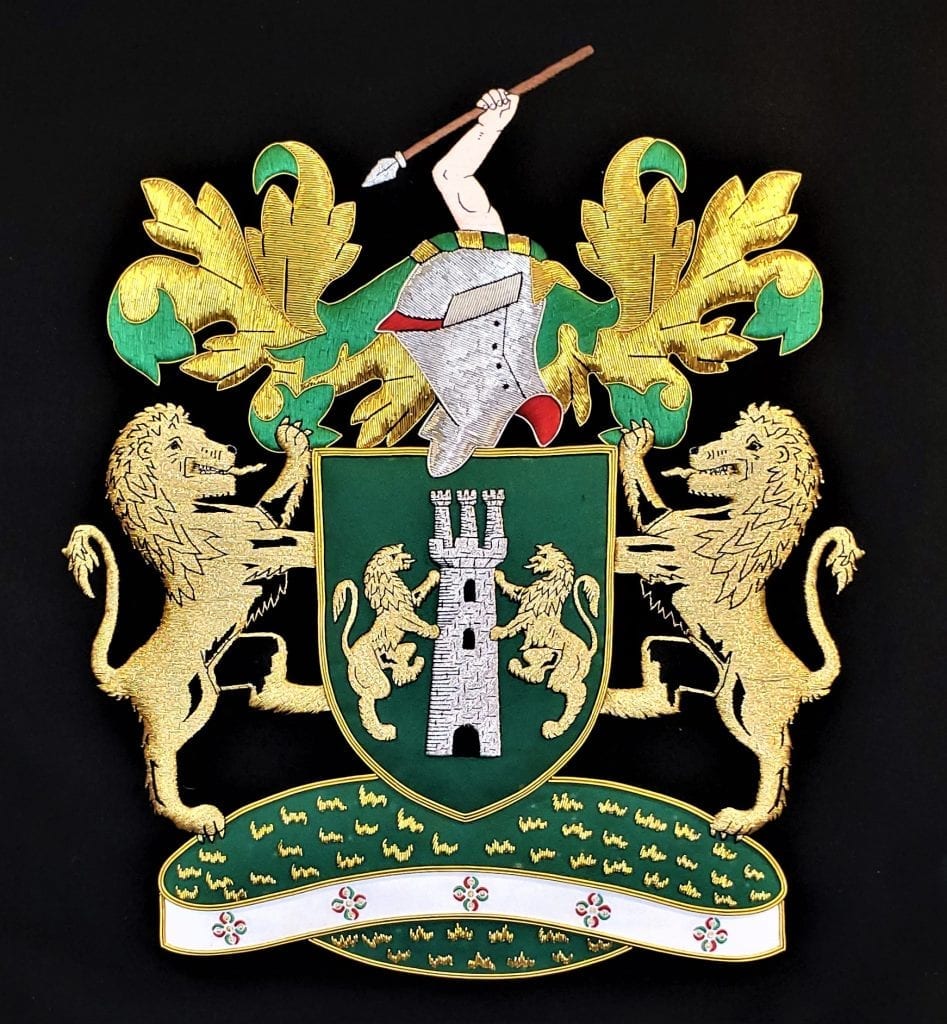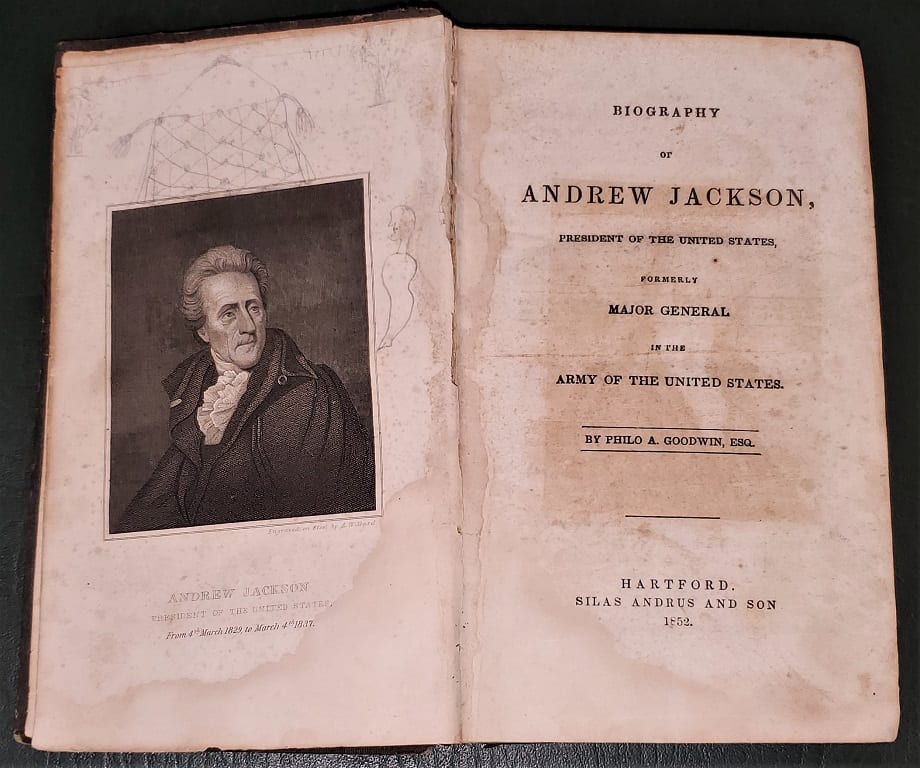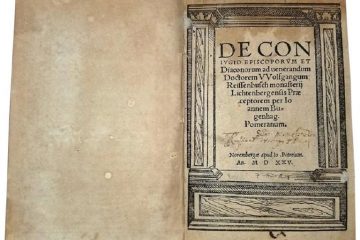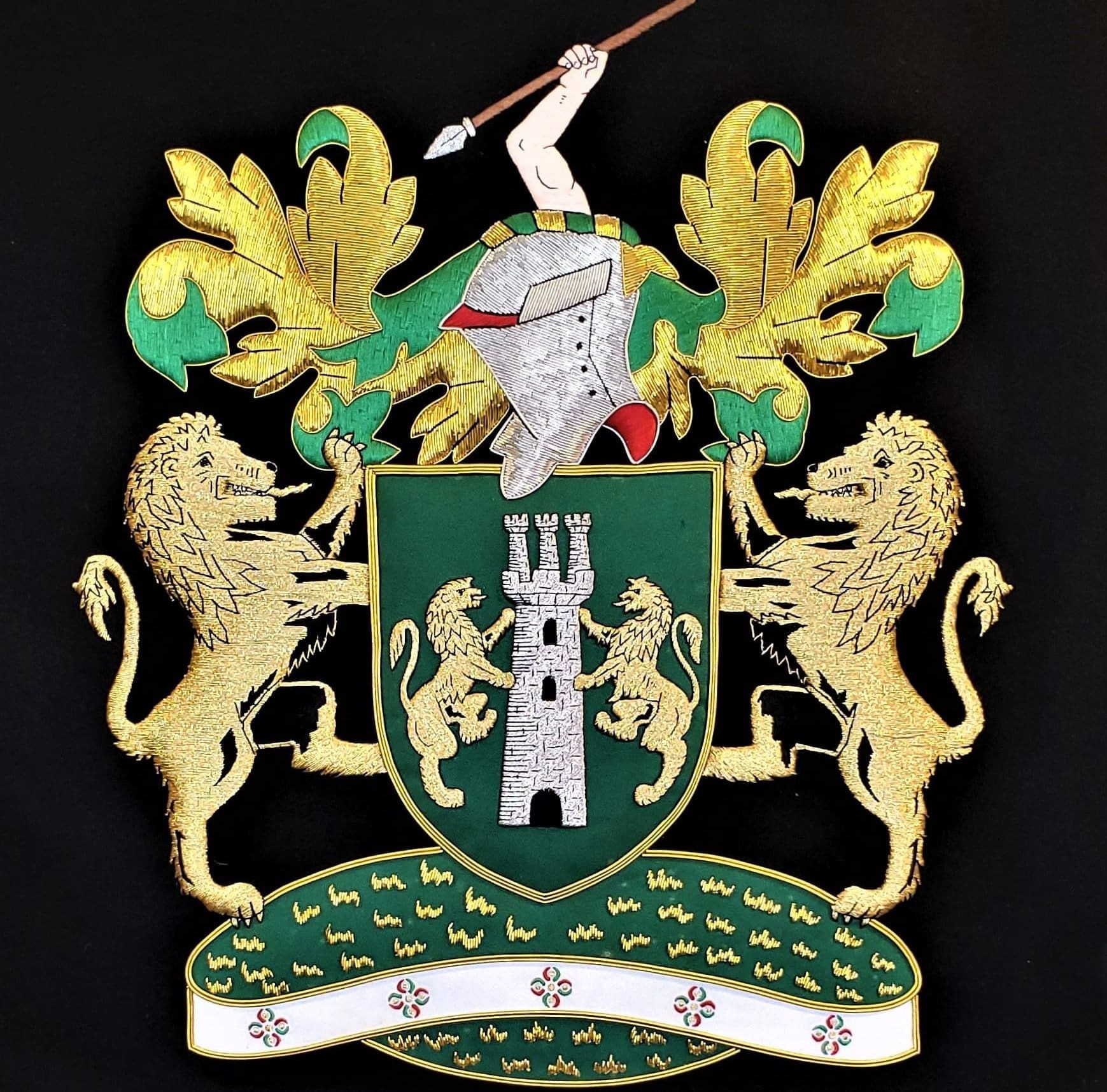Biography of Andrew Jackson by Goodwin 1852
PRESENTING A VERY RARE BOOK, namely, The Biography of Andrew Jackson by Goodwin 1852.
Headed “Biography of Andrew Jackson, President of the United States, Formerly Major General in the Army of the United States.” by Philo A. Goodwin Esq. Published by Silas Andrus and Son of Hartford, Connecticut in 1852.
Entered according to Act of Congress, in the year 1833, by R. Hart Towner, in the Clerk’s Office of the Southern District of New York.
What gives this particular book even greater significance is that it has the signatures and dates of it’s original 3 owners, namely, “M.P. Estes Book, June 5th 1855” and “Peter Sehorn” and it looks like “Hux O’Harkin Texas Feb. 15th 1870”.
It also contains a fascinating hand written commentary on the last 2 pages by one of these owners which compares Jackson to Jefferson Davis.
It appears to say as follows:-
“Andrew Jackson, one of the Presidents of the United States of America. It is a fritz but what, we had a man like him now instead of the puty that we have now. We would have a different state of affairs but we have to do the best we can have our day is coming when our tribes can see oppression and the yanke terror failed under foot and we are now if we had another Andrew Jackson at our head, we Rebs would have a better time but we have to subject to Jefferson Davis. Poor fellow like him very much for he is a grub, find he lost his cases and was taciturn. Oppression by the most thrifling account sit of him who has nothing.”
Obviously a commentary written during the Civil War circa 1864.
Obviously an amazing social commentary by a Texan, and someone loyal to the Confederacy.
A FANTASTIC PIECE OF AMERICAN HISTORY CAPTURED IN TIME !
The American Civil War (April 12, 1861 – May 9, 1865, also known by other names) was a civil war in the United States fought between northern and Pacific states (“the Union” or “the North”) and southern states that voted to secede and form the Confederate States of America (“the Confederacy” or “the South”).[e] The central cause of the war was the status of slavery, especially the expansion of slavery into newly acquired land after the Mexican-American War.
After former U.S. Congressman Abraham Lincoln won the November 1860 presidential election on an anti-slavery expansion platform, an initial seven Southern slave states declared their secession from the country to form the Confederacy. War broke out in April 1861 when the Confederate army attacked Fort Sumter in South Carolina, just over a month after Lincoln’s inauguration. An additional four slave states joined the Confederacy in the following two months. The Confederacy grew to control at least a majority of territory in those eleven states (out of the 34 U.S. states in February 1861), and it claimed the additional states of Kentucky and Missouri by assertions from native secessionists fleeing Union authority. These states were given full representation in the Confederate Congress throughout the Civil War. The two remaining slave states, Delaware and Maryland, were invited to join the Confederacy, but Delaware declined and nothing substantial developed in Maryland due to intervention by Federal garrisons. The Confederate States of America were never diplomatically recognized as a joint entity by the government of the United States, nor by that of any foreign country. The states that remained loyal to the federal government were known as the Union.
The war effectively ended on April 9, 1865, when Confederate General Robert E. Lee surrendered to Union General Ulysses S. Grant at the Appomattox Court House. Confederate generals throughout the Southern states followed suit, the last surrender on land occurring on June 23. Much of the South’s infrastructure was destroyed, especially its railroads. The Confederacy collapsed, slavery was abolished upon ratification of the thirteenth amendment, and four million enslaved Black people were freed. The war-torn nation then entered the Reconstruction era in a partially successful attempt to rebuild the country and grant civil rights to freed slaves.
Link: https://en.wikipedia.org/wiki/American_Civil_War
Andrew Jackson (March 15, 1767 – June 8, 1845) was an American politician, lawyer, and soldier who served as the seventh president of the United States from 1829 to 1837. Before being elected to the presidency, Jackson gained fame as a general in the United States Army and served in both houses of the U.S. Congress. An expansionist president, Jackson sought to advance the rights of the “common man” against a “corrupt aristocracy” and to preserve the Union.
Born in the colonial Carolinas in the decade before the American Revolutionary War, Jackson became a frontier lawyer and married Rachel Donelson Robards. He served briefly in the United States House of Representatives and the United States Senate, representing Tennessee. After resigning, he served as a justice on the Tennessee Supreme Court from 1798 until 1804. Jackson purchased a property later known as The Hermitage, and became a wealthy, slaveowning planter. In 1801, he was appointed colonel of the Tennessee militia and was elected its commander the following year. He led troops during the Creek War of 1813–1814, winning the Battle of Horseshoe Bend. The subsequent Treaty of Fort Jackson required the Creek surrender of vast lands in present-day Alabama and Georgia. In the concurrent war against the British, Jackson’s victory in 1815 at the Battle of New Orleans made him a national hero. Jackson then led U.S. forces in the First Seminole War, which led to the annexation of Florida from Spain. Jackson briefly served as Florida’s first territorial governor before returning to the Senate. He ran for president in 1824, winning a plurality of the popular and electoral vote. As no candidate won an electoral majority, the House of Representatives elected John Quincy Adams in a contingent election. In reaction to the alleged “corrupt bargain” between Adams and Henry Clay and the ambitious agenda of President Adams, Jackson’s supporters founded the Democratic Party.
Jackson ran again in 1828, defeating Adams in a landslide. Jackson faced the threat of secession by South Carolina over what opponents called the “Tariff of Abominations“. The crisis was defused when the tariff was amended, and Jackson threatened the use of military force if South Carolina attempted to secede. In Congress, Henry Clay led the effort to reauthorize the Second Bank of the United States. Jackson, regarding the Bank as a corrupt institution that benefited the wealthy at the expense of ordinary Americans, vetoed the renewal of its charter. After a lengthy struggle, Jackson and his allies thoroughly dismantled the Bank. In 1835, Jackson became the only president to completely pay off the national debt, fulfilling a longtime goal. While Jackson pursued numerous reforms designed to eliminate waste and corruption, his presidency marked the beginning of the ascendancy of the party “spoils system” in American politics. In 1830, Jackson signed the Indian Removal Act, which forcibly removed most members of the major tribes of the Southeast to Indian Territory; these removals were subsequently known as the Trail of Tears. The relocation process dispossessed these nations of their land and resulted in widespread death and disease. Jackson opposed the abolitionist movement, which grew stronger in his second term. In foreign affairs, Jackson’s administration concluded a “most favored nation” treaty with the United Kingdom, settled claims of damages against France from the Napoleonic Wars, and recognized the Republic of Texas. In January 1835, he survived the first assassination attempt on a sitting president.
In his retirement, Jackson remained active in Democratic Party politics, supporting the presidencies of Martin Van Buren and James K. Polk. Though fearful of its effects on the slavery debate, Jackson advocated the annexation of Texas, which was accomplished shortly before his death. Jackson has been widely revered in the United States as an advocate for democracy and the common man. Many of his actions proved divisive, garnering both fervent support and strong opposition from many in the country. His reputation has suffered since the 1970s, largely due to his pivotal role in the forcible removal of Native Americans from their ancestral homelands; however, surveys of historians and scholars have ranked Jackson favorably among U.S. presidents.
Link: https://en.wikipedia.org/wiki/Andrew_Jackson
Biography of Andrew Jackson by Goodwin 1852.
Provenance: From a Historical Southern Estate.
Condition: Some losses to spine and binding. Some discoloration to cover cloth. Some foxing and some loose binding. We would describe the book as being in fair condition for it’s age.
Dimensions: 7.75 inches tall, 4.75 inches wide and 1.5 inches deep
SALE PRICE NOW: $660
